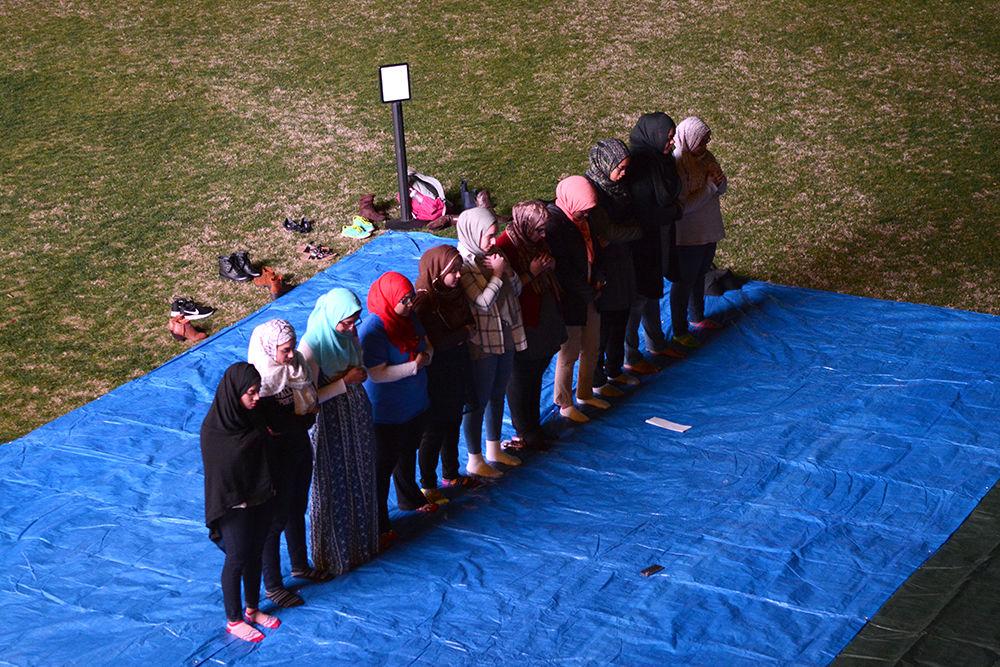Students tend to be the face and focus of activism at NC State, leading events such as the United not Divided rally, the Die-in in Talley Student Union, counter-protests to anti-abortion groups and so on. But, according to some of the activist professors on campus, faculty also have a role in activism at NC State.
Field Coordinator and Senior Lecturer in the Bachelor of Social Work program Barbara Zelter is among the NC State faculty with a reputation for being politically and socially engaged. She is an active participant in the NAACP, does regular community organizing at State, teaches on subjects that are relevant to socially progressive causes and has been arrested three times for civil disobedience.
According to Zelter, her activist work inside and outside the classroom is in accordance with her job requirements; she says they are in part act a call to action, mandating social workers to actively engage in social causes.
“What’s interesting and different about social work is that we have a formal code of ethics, like doctors have a code of ethics,” Zelter said. “Our code of ethics mandates civic engagement, social justice, racial equity and promotion of diversity.”
Zelter said that, as a teacher of social work, the roles of “professor” and “engaged citizen” did not separate for her. Despite the duty to avoid intimidating students into thinking a certain way, there’s also a need to discuss political and cultural issues in the classroom for the sake of a fuller education.
“I know that there’s this notion that you don’t want to bias your students because you have power, so you don’t want to intimidate or sway them to think like you or think they won’t get as good a grade,” Zelter said. “But … I think that’s kind of this notion of silos in university; that’s not what holistic education is about.”
Rupert Nacoste, a professor in the Department of Psychology, does regular public speaking, including at NC State student groups, North Carolina high schools, academic groups and even the Pentagon, because of his “natural talent” for public speaking. He has spoken at many public events on campus as well, including the United not Divided rally earlier this month.
Nacoste uses public speaking platforms to frame discussions about social issues with findings from his field of research, social psychology. He shares findings on “intergroup tensions” without explicitly referencing their scientific underpinnings and highlights scientific facts about social topics.
“I’m always trying to push the ideas that come through the scholarship,” Nacoste said. “It’s not just what I believe, it’s ‘what does the science tell us?’”
Nacoste said professors like him get to speak from their expertise in social and political discussions because of their “academic freedom”, their right to speak from expertise. However, he pointed out, he can’t just say anything in classes.
“I can’t speak about something I don’t have a scholarly connection to in my classroom,” Nacoste said, “because then it’s just your opinion, and you’re going ‘blabbity blabbity.’”
Nacoste said that part of his role is speaking with NC State’s administration to discuss social and political topics, and that he has spoken multiple times with the chancellor and others in the university’s administration. He says the administration has reached out to initiate these conversations, as well.
Associate Professor of Physics Karen Daniels says, despite teaching exclusively scientific topics, she is intentional about bringing up the human factors of what she is teaching in her classes.
“Physics classes don’t have much political content in them,” Daniels said. “But, there are definitely places where the real world of politics and people comes into play.”
Daniels responded to the explanation proposed in the previous “student perspective” article in this series that NC State’s reputation as a STEM and agriculture school affects the level of activism on campus. She said such an explanation does not provide a full story.
“I don’t know if that suffices as an explanation because I don’t see myself as being able to disentangle news from my work,” Daniels said.
Nacoste offered a different framework of thinking about the perceived lack of activism shared by student activists. He says that the “heterogenous” nature of political thought on campus—the diversity of ideas held by NC State students—is part of this perception, and compares it to the less varied culture of disciplines he perceived at UNC-Chapel Hill while getting his Ph. D. there.
“UNC has a more homogenous culture than NC State does: more liberal arts [at UNC],” Nacoste said. “NC State is interesting because it’s not homogenous; it’s heterogenous. That is one of the wonderful things about this place; it’s not one mindset here.”
Nacoste said that this leads to a dynamic culture at NC State that requires students to reconcile differences of thought, and that there are more cultural rifts that students must confront.
“You’re going to have to live in that reality,” Nacoste said. “The rest of the world isn’t homogenous.”
Zelter, from the social work department, says that both faculty and students who are interested in activism are rare at the university. This means it’s important that students and faculty who are interested in activism find each other and connect.
“The students who want to be activists are a slim section, just like the faculty,” Zelter said. “I think that students who are interested in it do well to really build a close relationship with faculty who do that sort of work and who they respect. To me, it almost feels like a ministry or calling to support and help groom students who have this curiosity. It’s like I’m adopting these people.”
This is the second story in a series about activism at NC State.








